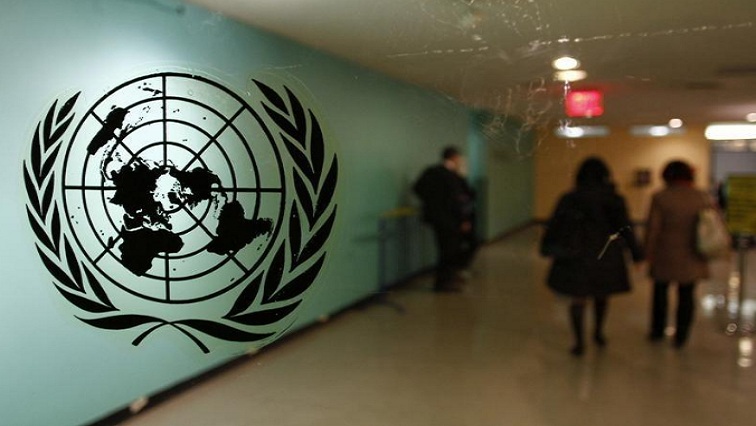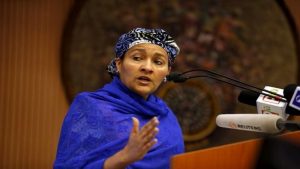The United Nations on Friday marked the 75th anniversary of the signing of its Charter with a call from the Secretary General for the world to reimagine the way nations cooperate.
The document, signed in San Francisco on June 26, 1945 calls for the UN to maintain international peace and security, promotes social progress and better standards of life while safeguarding human rights and international law. In a forward-looking message, the UN Chief warned that meaningful transformation of global governance cannot be achieved without the participation of world powers – relationships he referred to as dysfunctional.
The message is a simple one – the values and goals of the Charter are still relevant today – more than seven decades since its signing at the conclusion of the UN Conference of International Organisation in San Francisco in 1945.
In the audio below, Sherwin Bryce-Pease reports on the story:
“From COVID-19 to climate disruption, from racial injustice to rising inequalities, we are a world in turmoil. At the same time, we are an international community with an enduring vision – embodied in the Charter – to guide us to a better future. The same Charter whose values enabled us to avoid the scourge of a Third World War as many had feared. Our shared challenge is to rise to this moment,” said António Guterres.
He pointed to the COVID-19 pandemic as one of the most significant challenges that has faced the UN since its inception – an example of why a strong multilateralism was needed now more than ever.
“In the 21st century, governments are no longer the only political and power reality. And we need an effective multilateralism that can function as an instrument of global governance where it is needed. The problem is not that multilateralism is not up to the challenges the world faces. The problem is that today’s multilateralism lacks scale, ambition and teeth. And some of the instruments that do have teeth, show little or no appetite to bite, as has recently been the case with the difficulties faced by the Security Council. We need to give multilateralism the capacities to confront our challenges, not only to meet immediate needs, but to enable future generations to meet theirs”.
In a world where the great powers – particularly the US, China and Russia often done see eye-to-eye – creating greater geopolitical tensions rather that than leading to their resolution, often rendering the Security Council ineffective as Guterres explained.
“It is difficult to have a meaningful transformation of the mechanisms of global governance without the active participation of the world powers – and, let me blunt, their relationships today have never been more dysfunctional. But I firmly believe that awakening will come when we recognize our shared fragilities – when the factors that today divide instead begin to force people to finally understand that division is a danger to everyone, starting with themselves. Ultimately, that is the way out of the mist. Our Charter still points that way”.
Some believe that the Charter mixed with the 2030 Development Agenda and its 17 Sustainable Development Goals that provides a blueprint for a better life for all; makes for an ambitious roadmap that requires equally ambitious levels of implementation.






